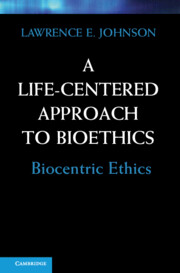2 - Some Background
Self and Reason
Published online by Cambridge University Press: 05 June 2012
Summary
Like all forms of life, we develop from our past. That is true of us as individuals, and it is true of us collectively. Even as we engage in our current thinking about one thing or another, we largely do so by means of the concepts and presuppositions we have at hand. Some we may have developed ourselves, but many we have gathered from our ambient culture and inherited from its past. We may not be conscious of our ideological inheritance. We may be no more directly aware of it than we are of the language we use, though like our language, it infuses our words and thoughts. Indeed, many concepts and presuppositions have become embedded in the very structure of our language. For that matter, we who speak the language Shakespeare spake may not be conscious that we so often invoke the master wordwright, that we can scarcely avoid doing so in using the language he did so much to shape. Our Shakespearian inheritance is a glorious cultural treasure and, more broadly, there is much hard-won wisdom in our inherited ways of thinking with its concepts, presuppositions, and associations. Still, our inherited ways of thinking are not the ultimate in conceptual resources any more than Shakespeare is the last and only word in literature. These inherited conceptual resources are the most readily available to us and inevitably bear on our thinking. We would do well to be aware of them and to critically assess them as well as we can. This is very much true in bioethics as well, and in this chapter I am particularly concerned with our inherited conceptual resources in application to bioethics and our thinking about ourselves.
To give a full analysis of our inherited ideas and ways of thinking in Western thought, or even of those that influence our bioethical thinking (which is a considerable proportion of them), would be an encyclopedic project far beyond the scope of this current undertaking. Even if I could fully complete such a project – and I know that I could not and doubt whether anyone else could – such an endeavor would obscure the aims of this project. In this chapter I try to highlight certain central inherited ideas about what we are and that continue to influence our thinking about bioethical issues, to indicate the general nature of their implications, and, as relevant, to indicate something of their shortcomings. This is to lay the foundation for my subsequently presenting alternative ideas and ways of thinking as being more adequate. In Chapter 4, I further discuss problems in our use of language, with particular reference to the difficulties in making distinctions, drawing lines, and avoiding slippery slopes.
- Type
- Chapter
- Information
- A Life-Centered Approach to BioethicsBiocentric Ethics, pp. 15 - 38Publisher: Cambridge University PressPrint publication year: 2010



